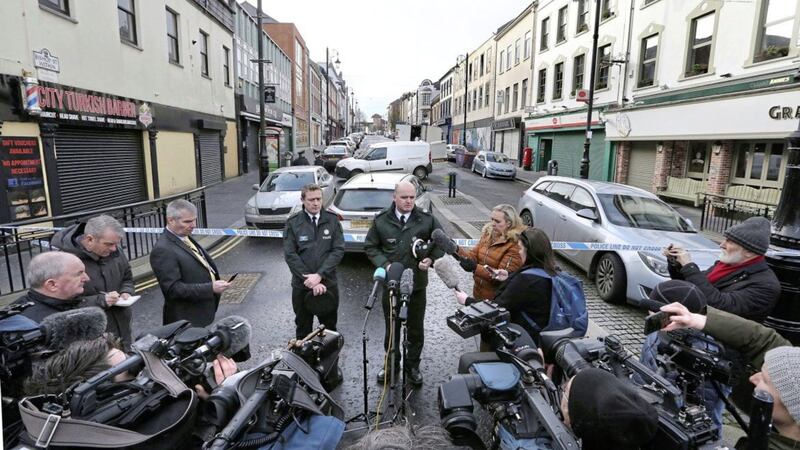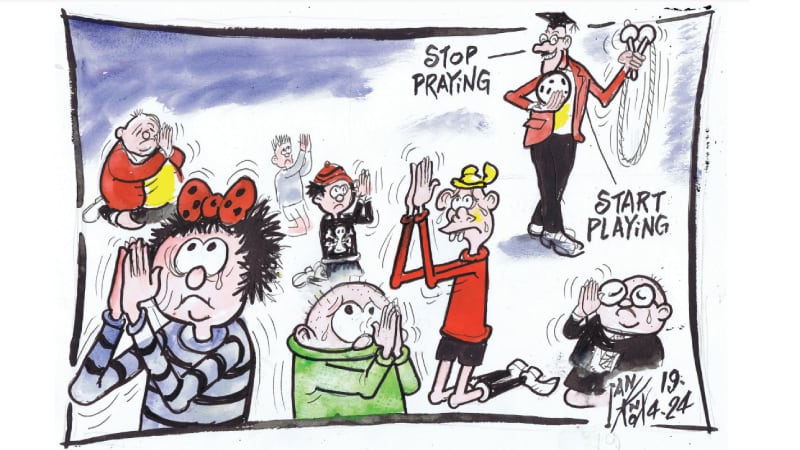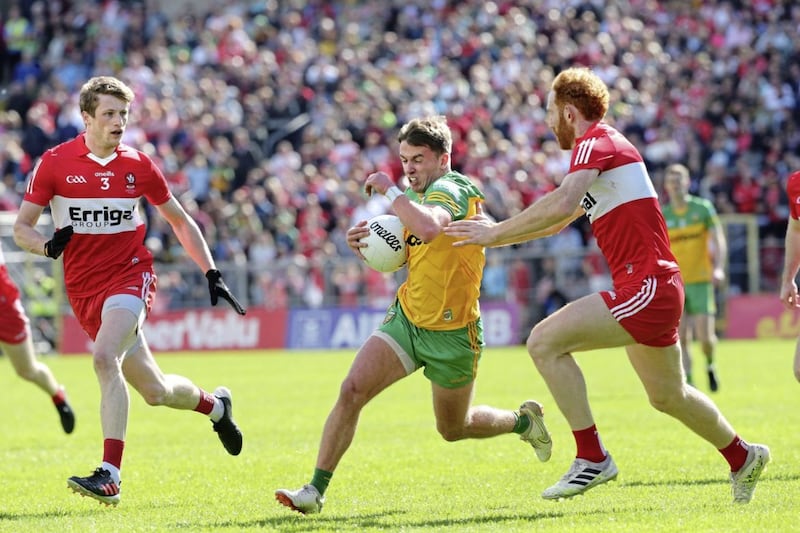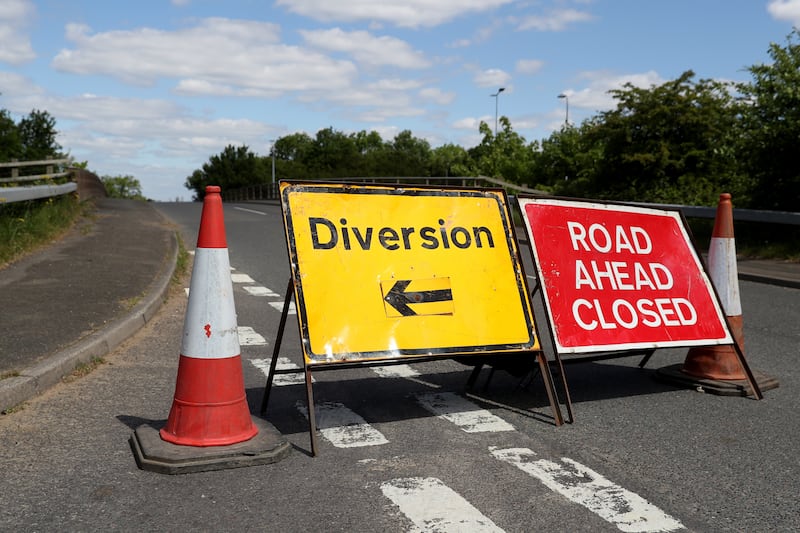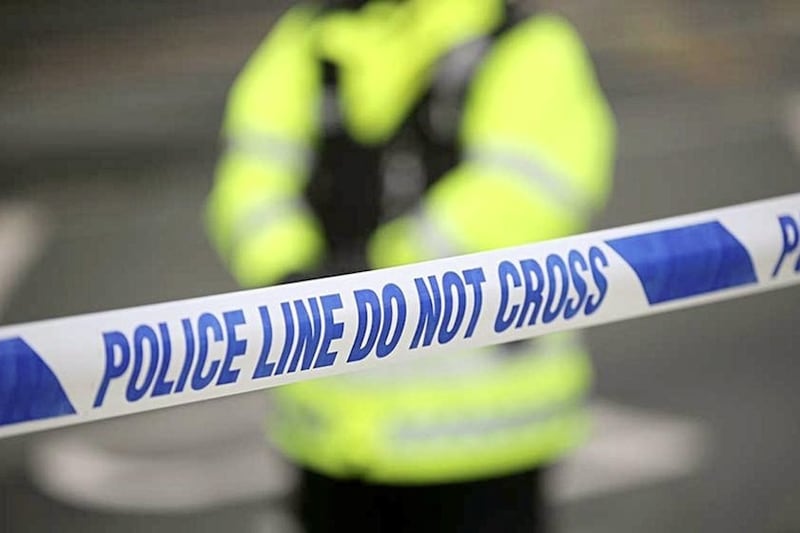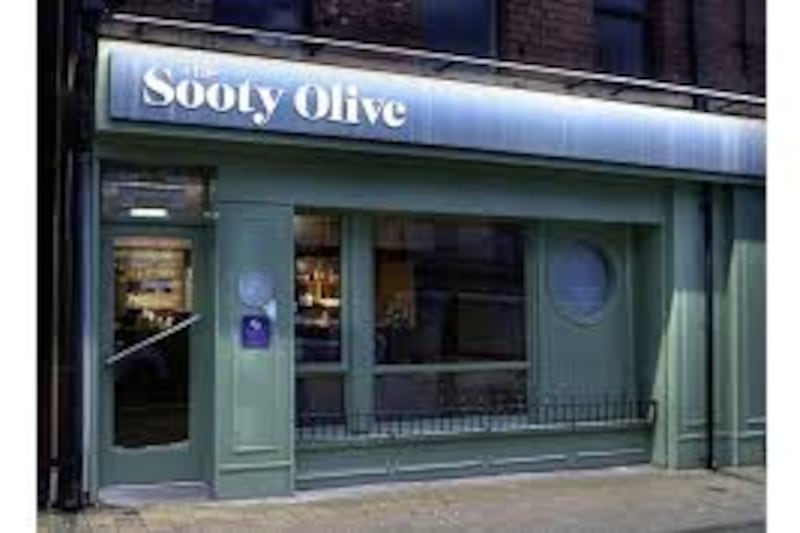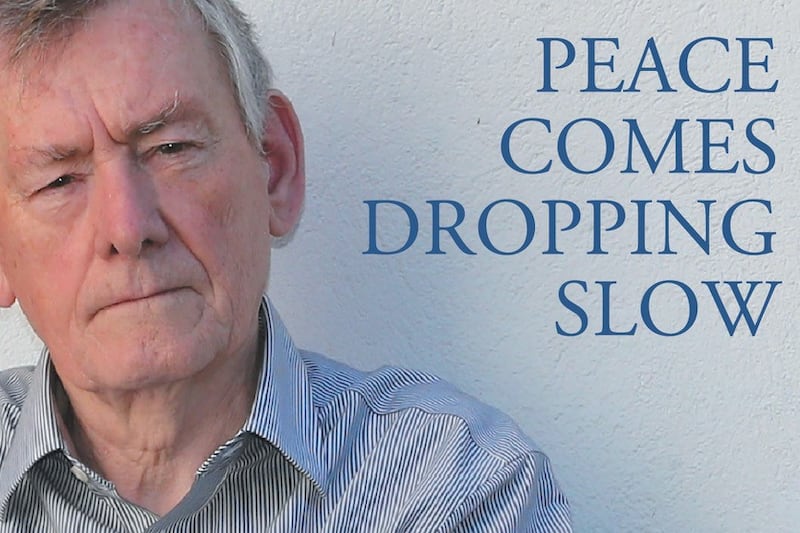AS parts of Derry remained closed off last night, with PSNI forensic officers examining the aftermath of the weekend car bomb, the motive, capability and future threat posed by the group responsible is now subject to debate and discussion.
While arrests have been made, that should not automatically create a perception of guilt. There is a pattern following this type of high-profile attack of police rounding up the 'usual suspects', a tactic that produces little statistically in the way of convictions.
However, the age of some of those arrested is relevant when examining an increase in dissident activity in Derry.
That young men in their 20s are being arrested as 'New IRA' suspects is a situation worthy of further analysis.
Given the dramatic change in demographics and the now mainstream discussions around a future border poll, the prospect of Irish unity is no longer the aspirational fantasy of rebel songs and graveyard orations.
So what would attract a 20-year-old to an organisation whose ethos seems outdated and out of step with current political developments?
The answer may be found in sectarian violence that erupted in the city last July.
Previously held up as a model of compromise and dialogue, with parading disputes in the city resolved while Belfast was still subject to annual riots, there was shock at over a fortnight of violence aimed at the small loyalist Fountain estate.
What started as anti-social behaviour was quickly hijacked by the New IRA, who exploited disaffected youths for their own aims.
Sources say the New IRA been on a mass recruitment drive in the north west, with young people in Derry, Strabane and the surrounding areas - a generation who have seen little financial benefit from peace - easily exploited.
That 10 years of relatively unbroken devolved government did not deliver for the region, in terms of investment and community funding, creates a perception of bias that can be manipulated for propaganda purposes.
A failure of the PSNI to win over the nationalist community, and attacks on the families of Catholic police officers designed as a warning to any nationalist considering a career in policing, maintains a 'them and us' status quo that is likely to continue for many years.
What many seasoned observers will also be considering this week is the long-term impact on Derry following the loss of Martin McGuinness, and with him the only major figure with the gravitas to keep republicanism on track.
A heavy and visible security response to such attacks may in the short term reassure the business community but it will not fix the cause of the current problem, which if not addressed will impact on a new generation - young men and women born into a promised but not yet delivered new beginning.
